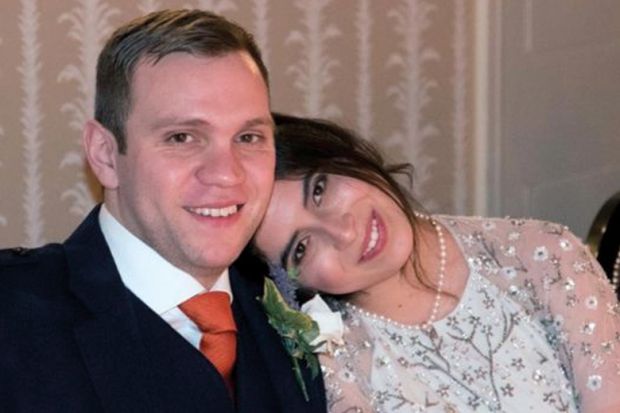A UK student who was arrested and detained in the United Arab Emirates during a research trip has been sentenced to life in prison on spying charges.
Matthew Hedges, a doctoral research student specialising in Middle Eastern politics at Durham University, had travelled to the region earlier this year to interview contacts about Middle Eastern foreign policy and security issues.
Preparing for his return home on 3 May, he was detained at Dubai Airport and held in solitary confinement for five months. He was eventually released on bail but ordered to remain in the UAE until a court case in Abu Dhabi on 21 November. Although Mr Hedges denied the charges against him, he was found guilty of “spying for or on behalf of” the UK government and given a life sentence.
Stuart Corbridge, Durham’s vice-chancellor, said that the university was “devastated” by the sentence.
“Following a period in which he was detained in conditions which breached his human rights this judgment has been delivered in the absence of anything resembling due process or a fair trial,” Professor Corbridge said.
“There has been no information given on what basis Matt was handed this sentence and no reason to believe that Matt was conducting anything other than legitimate academic research.”
Professor Corbridge added that the university was “committed to doing what we can to get Matt home safely and swiftly”.
Speaking to Times Higher Education last month, Mr Hedges’ wife, Daniela Tejada, said that her husband had been kept in “appalling conditions” without washing facilities or company, and had been suffering from depression and anxiety as a result.
While she “could not fault” the support provided by Durham, Ms Tejada criticised the response from the UK’s Foreign Office as “ineffective” and argued that academics should be given diplomatic immunity to protect them abroad.
“Matt is not a spy, he is a researcher,” she said. “It should be the government’s duty – not just to Matt, but to all British academics – to defend academic and research independence.”
Durham has put a temporary moratorium on all non-UAE national student researchers travelling to the UAE until the reasons for Mr Hedges’ detention are fully established.
Sarah Elton, president of the Durham branch of the University and College Union, said members were “shocked and horrified at the life sentence given to Matthew”.
“His arrest and imprisonment is a threat to academic freedom and research,” she said. “We call on the Foreign Office to take immediate steps to secure Matthew’s rapid acquittal and release.”
Matt Waddup, the union's head of policy and campaigns, said that the government had “a responsibility to ensure that British citizens abroad get treated fairly and receive a fair trial”.
“British universities may be keen to launch overseas campuses in places like the UAE, but this case demonstrates that they need to seek stronger assurances on human rights and the treatment of academics,” Mr Waddup said.
In a statement, Jeremy Hunt, the UK’s foreign secretary, said that he was "deeply shocked and disappointed” by the verdict, adding that it was “not what we expect from a friend and trusted partner of the United Kingdom”.
“I have repeatedly made clear that the handling of this case by the UAE authorities will have repercussions for the relationship between our two countries, which has to be built on trust. I regret the fact that we have reached this position, and I urge the UAE to reconsider," Mr Hunt said.




